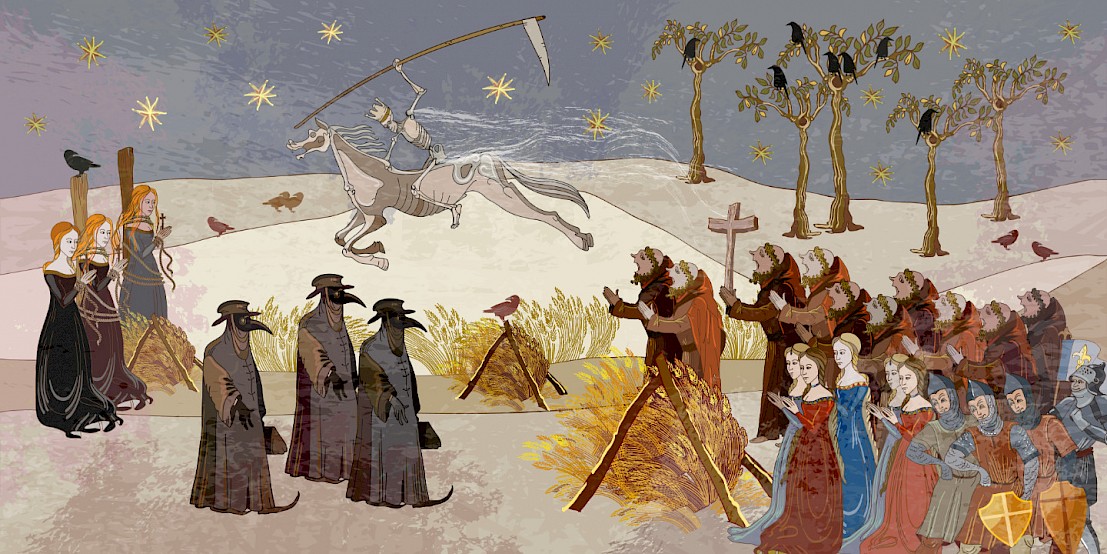.... or Lessons from the Black Death

Humans live in a world of crises and catastrophes. Usually we understand them simply as random "acts of God" which wreck human lives and designs. But this common-sense worm's-eye view masks important questions. Do catastrophes just happen randomly or do humans create them? Do they change history, or do they just facilitate it? Are they a patterned evolutionary force or just random noise? This talk addresses such questions. As an example, we turn to the bubonic plague epidemic of 1348-9 - the so-called "Black Death", in which up to half the population of England died. What does it teach us about the experience of historical crisis?
Professor John Robb, Professor of European Prehistory, University of Cambridge Department of Archaeology

John Robb received his first training in medieval English literature (BA, University of Chicago, 1983), and then went on to study anthropological archaeology at the University of Michigan (MA, 1989; PhD, 1995). His PhD thesis dealt with inequality and gender in Italian prehistory, combining evidence of human skeletons, archaeology and prehistoric art. After a brief post-doc at Southern Illinois University (1995-6), he taught at the University of Southampton for five years (1996-2001). Since 2001, he has been teaching at Cambridge, becoming Professor in 2015. He became a fellow of Peterhouse in 2015.
John has run major projects on southern Italian archaeology, the biographies of ordinary people in medieval Cambridge, and the theoretical history of the human body. Besides these topics, he is interested in material culture theory, burial taphonomy and ritual, and prehistoric art. As this suggests, he specialises in being a generalist.
Attending lectures
Full video
The lecture will be preceded by a short presentation from a CSAR PhD Award Winner.
Understanding how neutrophils self-organise their migration to sites of inflammation.
Hugo Poplimont, University of Cambridge Department of Physiology, Development and Neuroscience.